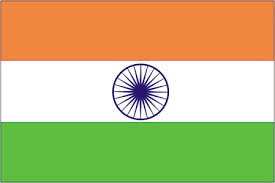Statement by Ms. Rachita Bhandari, Counsellor, Permanent Mission of India to the Conference on Disarmament, Geneva during the thematic debate on Disarmament Machinery of the First Committee of the United Nations General Assembly on October 30, 2019
Mr. Chairman,
India remains committed to the ideals enshrined in the UN Charter and to multilateralism in pursuit of those ideals. The UN has a central role and primary responsibility in the sphere of disarmament. In our view, the disarmament machinery, consisting of the triad of the First Committee, the UNDC and the CD, provides the ideal venues for deliberation and negotiations on matters related to disarmament, non-proliferation and international security. One of the most significant milestones within the UN from the perspective of disarmament has been the First Special Session on Disarmament in 1978, which unequivocally affirmed the role of the CD as the world’s single multilateral disarmament negotiating forum.
2. The CD and its predecessor institutions have a number of credits to their record, including the successful negotiations of the BWC and CWC. However, questions are being raised about the CD’s effectiveness and efficacy, and even its relevance as it has been more than two decades now that the CD has not been able to conduct negotiations in discharge of its mandate. Attempts have been made to explore alternative forums. It is India’s firm belief that the CD remains the most relevant and appropriate negotiating forum as it brings together militarily significant States, including all States possessing nuclear weapons. It enjoys legitimacy through its mandate, membership and rules for negotiating legally-binding universal instruments for strengthening international peace and security. Instead of trying to doubt the relevance and effectiveness of a well-established forum like the CD, we must seriously introspect and reflect on the reasons for the stalemate in the CD. Is it the fault of the CD or the lack of political will which has prevented the CD from working effectively?
3. In our view, the need of the hour is to revitalize the CD, and bring it once again at the core of global disarmament efforts. In this context, India has welcomed and supported various efforts, including the establishment of the Way Ahead Working Group in 2017 and the Subsidiary bodies in 2018. We regret that the CD could not renew the mandate of the Subsidiary bodies this year, losing momentum built up over the last two years. India remains committed to the adoption of a Programme of Work for negotiating legally-binding instruments on the core issues of the CD, including an FMCT on the basis of CD/1299 and mandate contained therein. It is our sincere hope that the CD would be able to advance our substantive work in order to deliver on its core mandate through the early commencement of such negotiations.
4. India also attaches importance to the UNDC as a universal deliberative forum for building consensus on disarmament and international security issues. We welcomed the adoption in 2017, by consensus, of the recommendations of its Working Group II on “Practical confidence-building measures in the field of conventional weapons”. We regret that the UNDC could not convene its formal session this year. We sincerely hope that the UNDC will be able to conduct its work formally next year and make substantive recommendations on both the issues on its agenda.
5. The three sessions of the OEWG on SSOD-IV in 2016 and 2017 adopted recommendations by consensus on the objectives and agenda of the SSOD-IV. We look forward to the convening of the SSOD–IV, which we believe can be an invaluable opportunity to assess progress made in the disarmament machinery.
6. It is also critical, Mr. Chairman, for the triad of the disarmament machinery to function as a composite whole so that ideas can flow and progress made in one institution can be leveraged in the other.
7. In conclusion, Mr. Chairman, there is an impression amongst some that our failure in addressing substantive disarmament and international security issues is due to procedural flaws and inherent inefficiency in the disarmament machinery. We must remind ourselves that a bad worker often quarrels with his tools. In pursuit of our collective security in an increasingly interdependent world, we have no alternative other than to strengthen multilateral mechanisms and institutions.
Thank you, Mr. Chairman.












